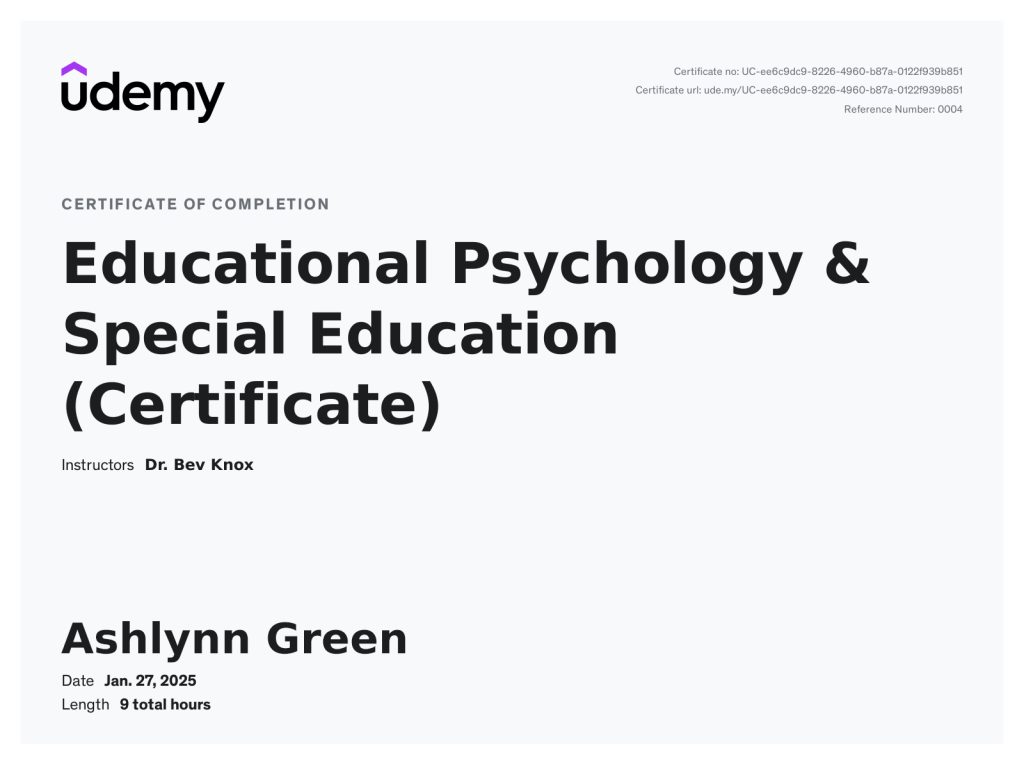
Course Description & Objectives:
“Educational Psychology involves the study of cognitive, emotional, and social learning processes that contribute to education and human development across the lifespan.
The primary goal of this course is to establish a foundation of knowledge for the understanding and acceptance of educational psychology in its many forms.
This is a full college-level type course with lectures and exams. It is a great way to explore the world of Educational Psychology, Special Education, Learning Types, IQ Scores, Teaching Techniques, and more. Both parents and professional educators are encouraged to take this course as part of their continuing education journey.
The key processes of development are biological, cognitive, and socioemotional. Biological processes (such as genes inherited from parents) involve changes in an individual’s body. Cognitive processes (such as thinking) consist of changes in an individual’s thought, intelligence, and language. Socioemotional processes (such as the advent of smiling) include changes in an individual’s relationships with others, in emotions, and in personality.
Parenting is an important influence on children’s development. Education can also contribute to children’s health and well-being. There is widespread concern that the education of children needs to be more effective, and there are many views in contemporary education about ways to improve schools.”
Some Interesting Parts of the Course
- I had never heard of, “Disruptive Mood Dysregulation Disorder” before. It is a disorder that primarily has extreme outbursts of anger and severe outbursts.
- 20% of Adolescents and Children have a diagnosable psychological disorder.
- 14-25% of Adolescents and Children experience anxiety at some point
- 8% of Adolescents and 2% of Children experience depression or bipolar disorder
- Around 7% of children have ADHD, 70% of that 7% is typically boys.
- “Good Teaching Matters!” “A single year with an outstanding teacher adds about $50,000 to a student’s lifetime earnings.”
- The amount of teens being arrested for serious matters has been drastically dropping.
- I thought it was interesting that even over 2,000 years ago, Plato noted, “No two persons are born exactly alike”. Everyone has unique personalities and needs.
- Children ages 8-12 typically have the best response to moving homes. It isn’t until they’re teenagers that it becomes much more difficult due to friend situations. Kids are resilient.
- I didn’t know that Obsessive Compulsive Disorder and Obsessive Compulsive Personality were different things. One of the side effects of OCD can be hoarding items that might have sentimental value or something you could potentially need. It talked about quite a few things that I’d never heard about OCD before, that were different from the stereotypical things you usually hear.
